The Yates Family: A Testament to the Indomitable Spirit and Perseverance of the Formerly Enslaved
John Henry “Jack” Yates was born into slavery on July 11, 1828 to Robert and Rachel Yates, who were enslaved on a plantation in Gloucester County, Virginia. The children of his enslavers taught John Henry how to read and write, despite it being illegal for an enslaved person to do so.
John Henry met his future wife, Harriet Willis, an enslaved woman from a nearby farm, and had the first 3 of their 11 children during their enslavement. In 1863, Harriet’s enslaver decided to move to Texas, and John obtained permission to follow her.
Harriet’s enslaver settled on a farm in Matagorda County where the Yates family lived until the end of the Civil War in 1865. After emancipation, John Henry “Jack” and Harriet Yates decided to move to Houston, Texas for work opportunities.
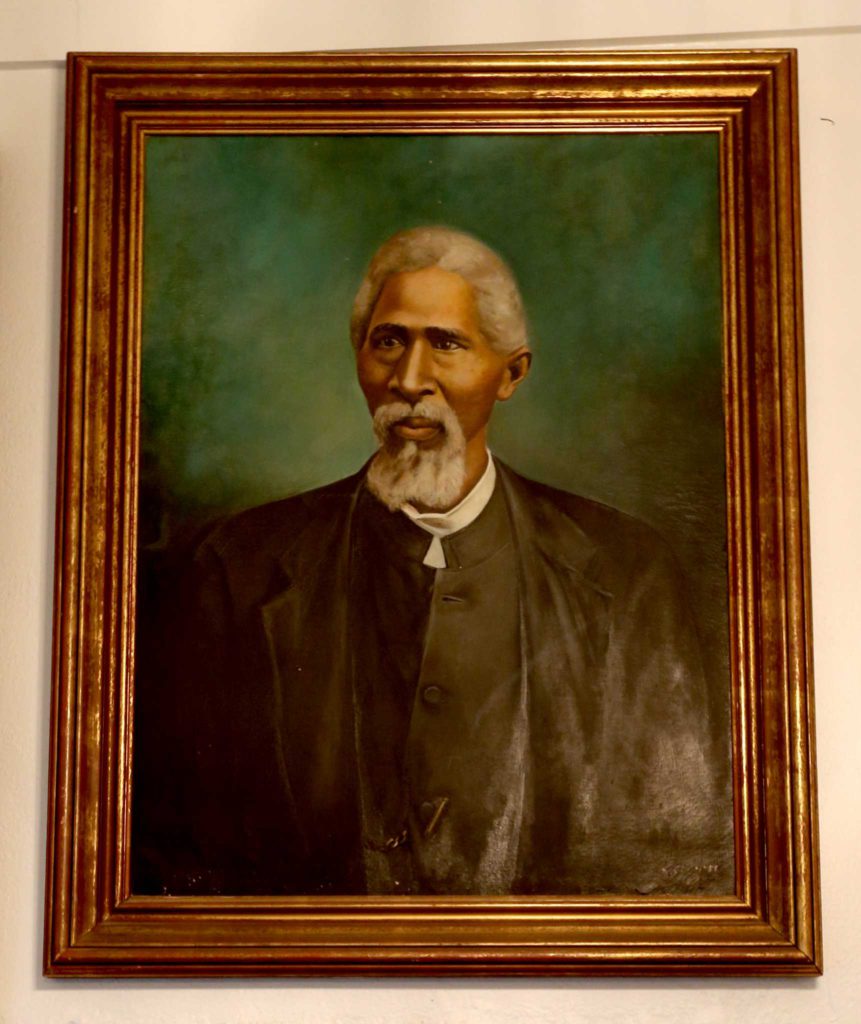
The Yates family settled in Houston’s Freedmen’s Town, a growing neighborhood consisting of recently freed men and women. Jack worked as a drayman delivering goods throughout Houston and preached on the weekends.
Yates’ preaching caught the eye of many travelers who were impressed with his literacy and passion, which caused his services to grow in popularity. Not even 3 years after settling in Freedmen’s Town, John Henry “Jack” Yates became an ordained minister and the pastor of Antioch Baptist Church.
In 1869, only 4 years after his emancipation, Jack Yates purchased several lots along Andrews Street in Freedmen’s Town. In 1870 Jack Yates built his home, the first two-story home for a Black individual in Houston, at 1318 Andrews Street.
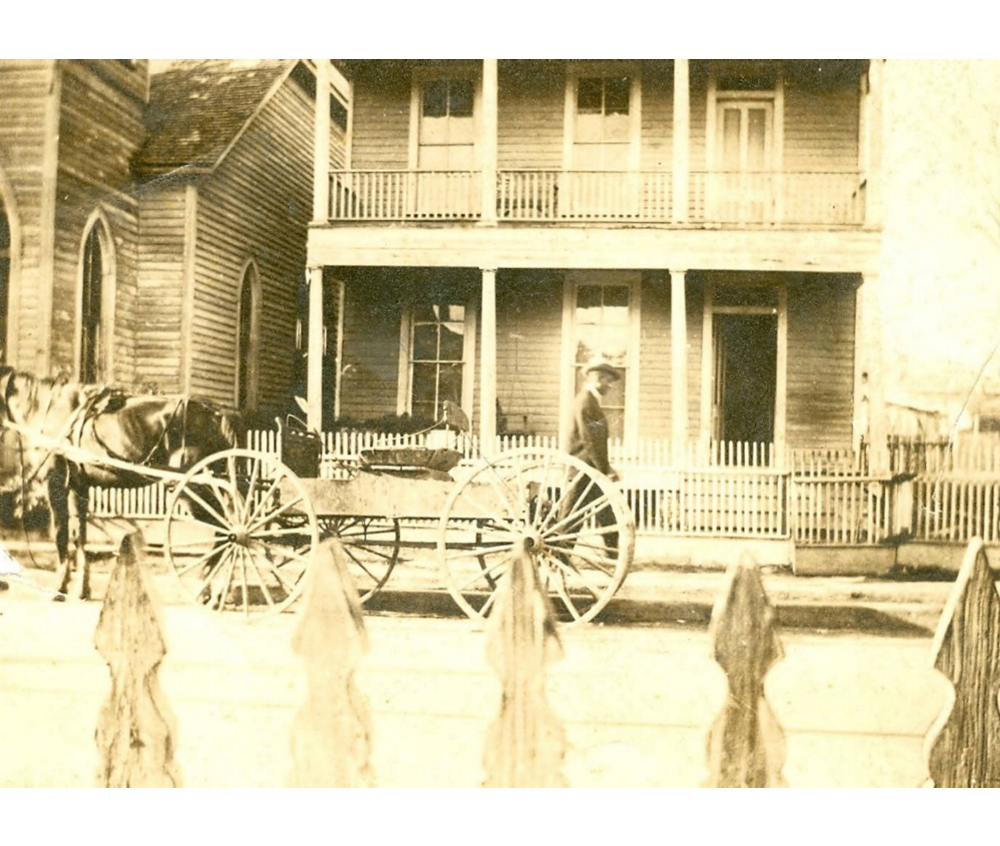
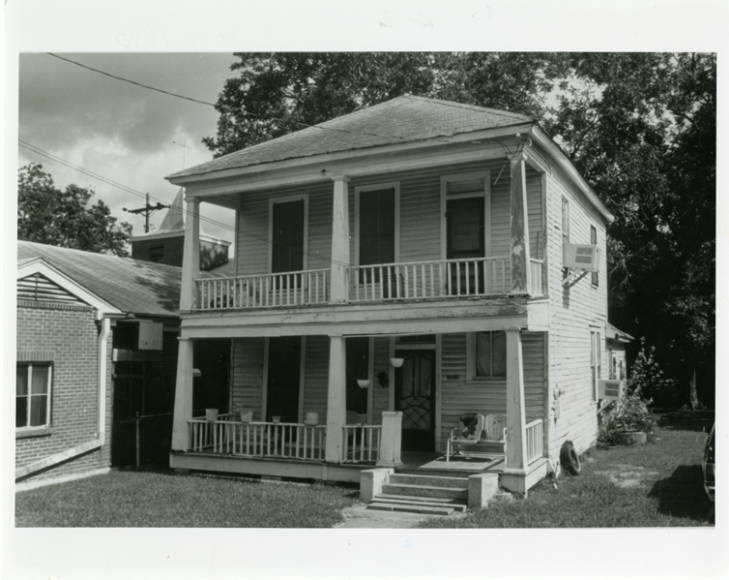
In 1887, Harriet passed away and John married Annie Freeman a year later in 1888. Annie and John had one child, Paul. Below is a complete list of the Yates children:
- Sallie Yates (born during enslavement)
- John Henry Yates, jr (born during enslavement)
- Mariah Yates (born during enslavement)
- Martha Yates
- Margaret Yates
- Willis Yates
- Rutherford Birchard Hayes Yates
- Mary Yates
- Nannie Selena Yates
- Pinkie Yates
- Lulu Yates
- Paul Yates
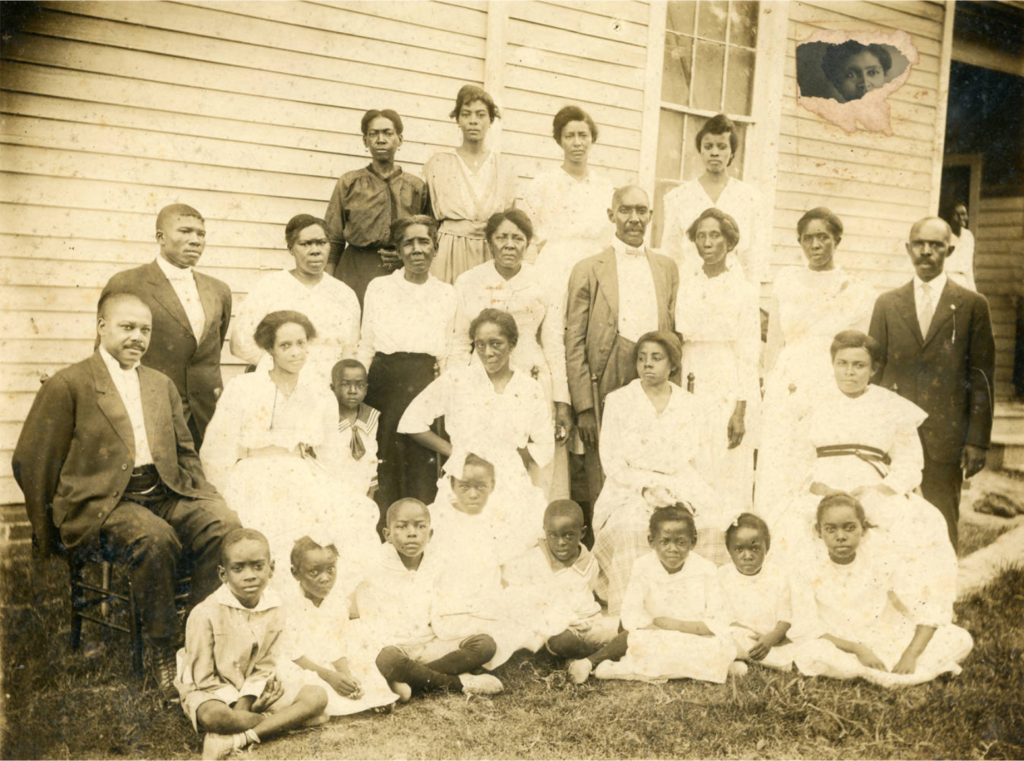
Front row – L to R: Eldridge Jackson, Martha Countee Whiting, Samuel Countee, Bernice Countee, Rutherford A. Countee, Velma Ambree Earl, Olee Yates McCullough, and Johnnie Mae Yates Rice
Second row – L to R: Mr. Jones, Rachael Sharkie Jones, Henry Jackson, Nannie Yates Countee, Hattie Petty, and Erie D. Yates
Third row – L to R: Paul Yates, Margaret Yates Jackson, Sallie Yates Ambree, Martha Yates Jones; John Henry Yates, Jr., Lula Yates Kemp, Pinkie Yates, and Rutherford B. H. Yates, Sr.
Fourth row – L to R: Mary Fair, Ethel Yates, Zurline Sharkey, and Henretta Kemp.
“Jack” Yates relentlessly worked to improve the conditions for Houston’s Black community. Not only was he a fierce advocate for educational opportunities and home ownership for recently freed slaves, he co-founded the Houston Academy, a school for black children, in 1886.
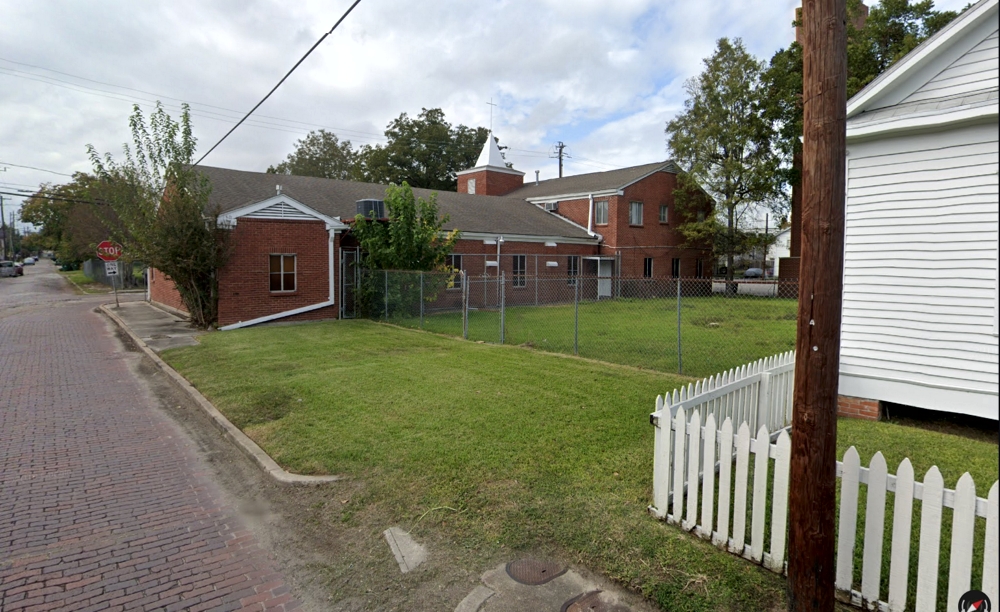
Jack Yates’ passed away in 1897 at the age of 69. After his death, his home became the family home for his children and grandchildren. In 1994, the Yates family donated the home to the Houston Heritage Society, where it sits today at Sam Houston Park, beautifully restored to its original condition.
In addition to the Yates Family Home, there are other extant imprints of Jack’s legacy in the Houston area. He helped establish Emancipation Park, the first Black park in Houston, which has been recently renovated and is located 3018 Emancipation Avenue in the historic Third Ward.
Yates also served as the pastor of Antioch Baptist Church, built in 1879 and located at 313 Robin Street. The church is the only surviving evidence of Freedmen’s Town’s existence on the east side of 45.